Research Office News
Pages
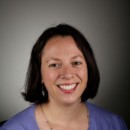 Anne Blumenthal Successfully Defends Dissertation
Anne Blumenthal Successfully Defends DissertationAnne Blumenthal, Joint PhD in Social Work and Sociology, has successfully defended her dissertation, "Essays on Child Well-Being and Parenting During the Covid-19 Pandemic."
Todd Herrenkohl, Katie Maguire-Jack and Sandra Danziger (co-chair) served as on her committee. Blumenthal has accepted a position as the Harold A. Richman Postdoctoral Fellowship at the Crown Family School of Social Work, Policy, and Practice and Chapin Hall at the University of Chicago.
- July 25, 2023
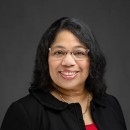
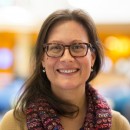
 2023 ENGAGE Small Grant Recipients Announced
2023 ENGAGE Small Grant Recipients AnnouncedIn 2018, ENGAGE launched the Small Grants Program to encourage faculty to build partnerships with Detroit community-based organizations and to support resident-led efforts to strengthen Detroit neighborhoods. These awards are supported by the Office of the Provost and are part of the School of Social Work’s strategic effort to connect Detroit engagement efforts and increase impact in the city. ENGAGE partners with the Ford School’s Detroit Urban Research Center in the administration of the small grants program.
Here are this year’s grant recipients:
1) It's not just me! Black young adults' views of what it takes to live on the right side of the law: An intersectional-CBPR study
Faculty Member: Associate Professor Camille Quinn (Michael Kloc, research assistant)
Community Partner: Rai LaNier, Executive Director, MI Liberation
2) Neighborhood Initiatives Examining Organizational Impact: A Quality Team Project
Faculty Member: Associate Professor Katie Richards-Shuster
Community Partner: Alexandra Bolin, Impact and Improvement Coordinator, United Project
3) Community-led Storytelling in Detroit
Faculty Member: Lecturer Maureen Okasinski
Community Partner: Erik Howard, Executive Director, Inside Southwest Detroit
4) D-Boy Dads: Exploring Fatherhood in Detroit
Faculty Member: Professor Rich Tolman
Community Partners: Sam Donald, Director Detroit Musix; Marcus Hille, Parent Think Tank; Willie Bell, Director: Family Assistance for Renaissance Men; John Miles, Children’s Center, Fatherhood Coordinator; Bomani Gray: Metro Detroit Father Policy Group
- July 18, 2023
- Rebeccah Sokol Study Links Exposure to Violence and Firecarm Carrying
Assistant Professor Rebeccah Sokol spoke with multiple news outlets about a recent study that showed teens who have been exposed to violence have a significantly higher rate of carrying firearms. Sokol said “This study highlights the importance of identifying the unique circumstances that link these two different types of exposure to violence to youth carrying firearms. By doing so, we can better understand why young people feel the need to own a firearm, provide intervention support and strategies, and reduce firearm injuries in youth,”
The study was a collaboration between the Institute for Firearm Injury Prevention, where Sokol is the training and education core co-director, and the Firearm Safety Among Children and Teens Consortium.
- July 18, 2023
 So’Phelia Morrow Named a 2023 Public Voices Fellow on Advancing the Rights of Women and Girls
So’Phelia Morrow Named a 2023 Public Voices Fellow on Advancing the Rights of Women and GirlsPhD student So’Phelia Morrow has been named a 2023 Public Voices Fellow on Advancing the Rights of Women and Girls. The US-based fellowship is part of The OpEd Project’s Public Voices initiative to include women’s voices in writing history and Equality Now’s mission to create a fair and just world for women and girls. During the year-long program, participants receive mentorship to effectively communicate their ideas and learn how to work with media outlets.
- July 13, 2023
- Learn more »
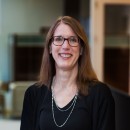 Kristin Seefeldt Leading Ann Arbor’s Guaranteed Basic Income Pilot Program
Kristin Seefeldt Leading Ann Arbor’s Guaranteed Basic Income Pilot ProgramAssociate Professor Kristin Seefeldt spoke to the Detroit Free Press and Bridge Michigan about Ann Arbor joining the growing list of cities across the nation exploring a guaranteed basic income program. Seefeldt will oversee the pilot program which will provide 100 income-eligible entrepreneurs with $525 a month for 24 months. “It could be someone who actually has established a small business that’s actively operating to someone who occasionally does yard work and mows lawns for neighbors … we’re really casting a broad net when we talk about … entrepreneurial activity,” said Seefeldt.
- July 12, 2023
- Learn more »
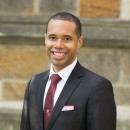 Justin Hodge Interviewed by CBS Detroit
Justin Hodge Interviewed by CBS DetroitClinical Assistant Professor Justin Hodge was interviewed by CBS Detroit where he discussed health equity and the practices around the sale of flavored tobacco products across the state. “We know that 21% of teens in Michigan have reported e-cigarette use, and a study with the FDA has shown that 40% of retailers have sold cigarettes to minors,” said Hodge.
- July 6, 2023
- Learn more »
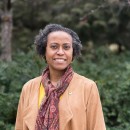 Trina Shanks Research Cited in Homestead Act
Trina Shanks Research Cited in Homestead ActProfessor Trina Shanks’ research on the long-term implications of the Homestead Act was cited by Justice Ketanji Brown Jackson in her dissent of last month’s Supreme Court ruling striking down affirmative action in college admissions.
- July 6, 2023
- Learn more »
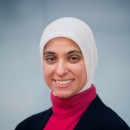 Fatima Salman Discusses the Importance of Social Workers in Public Policy
Fatima Salman Discusses the Importance of Social Workers in Public PolicyENGAGE Program Manager and Lecturer Fatima Salman spoke about the role of social workers in creating policy that supports mental health on the podcast “Breaking Through” with Kristin Rowe-Finkbeiner.
“Policy affects all of us,” said Salman. “We actually had the most amount of social workers running for office and winning ever in Michigan which is phenomenal because they approach policy through a mental health perspective. And how critical and amazing is that?”
- June 27, 2023
- Learn more »
- Rebeccah Sokol Discussed the Rise of Gun Ownership with the New York Times
Assistant Professor Rebeccah Sokol was quoted in a New York Times article exploring the rise in gun ownership in American families. Sokol’s research shows that families with teenagers who kept one firearm loaded and unlocked were more likely to buy another firearm during the pandemic than those who kept guns stored. These households are particularly vulnerable to gun injuries, she said. “Teens have some of the highest rates of firearm fatal and nonfatal injuries.”
- June 27, 2023
- Learn more »
 Olivia Chang Receives Honorable Mention from Ford Foundation Fellowship Program
Olivia Chang Receives Honorable Mention from Ford Foundation Fellowship ProgramPhD student Olivia Chang received an honorable mention from the 2023 Ford Foundation Fellowship Program. The programs seek to increase the diversity of the nation's college and university faculties by increasing their ethnic and racial diversity, maximize the educational benefits of diversity, and increase the number of professors who can and will use diversity as a resource for enriching the education of all students.
- June 14, 2023
- Learn more »